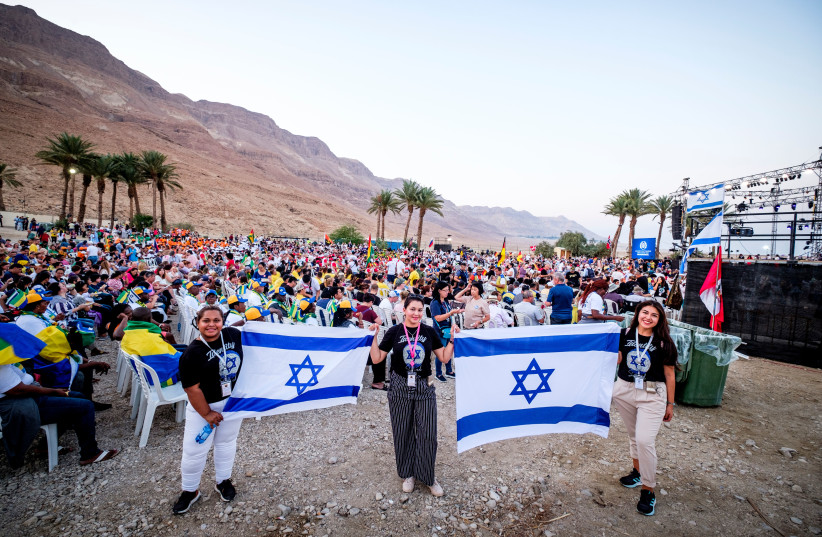A nearly two-year crisis between the most prominent Christian organizations operating in Israel and the Ministry of Interior has been at least temporarily solved, the International Christian Embassy in Jerusalem (ICEJ) said Thursday.
ICEJ, Bridges for Peace and Christian Friends for Israel had been struggling to staff their organizations after the Ministry of Interior changed their policy without notice. Each organization used to get a quota of volunteer and clergy visas to meet its operating needs. After the change, suddenly the staff did not qualify for these visas, and a solution did not seem in sight.
These organizations cannot continue to function without at least 10-15 permanent staff members,” explained lawyer Calev M. Myers to The Jerusalem Post in a previous interview. “These are very large organizations with 40 to 60 employees, most temporary or volunteers. But to build an organization, you have to have stable leadership. You cannot have people who come and go every year.”
ICEJ turned to the media last month, and several reports, including one published by the Post, raised the issue with the highest levels of the Israeli government. This week, senior leaders from the three organizations met with the Ministry of Interior’s new director-general, Eyal Siso, who agreed to return to the status quo until another situation could be found.
Christians 'warmly welcomed'
According to ICEJ, Siso said that the presence of Christian organizations in Israel is “warmly welcomed and their support for Israel appreciated.”

ICEJ’s vice president and senior spokesman David Parsons told the Post, “It is a relief that we will stick to our prior understanding concerning the visas until Eyal has time to work out any adjustments agreeable to all sides.”
He added that he was grateful for Siso’s response and understanding of the organization’s needs.
The ICEJ has been operating in Israel since 1980 and is registered as an Israeli NGO. ICEJ’s mandate is to “encourage Christians worldwide to stand with Israel and the Jewish people in solidarity and friendship, and particularly to support the 3,000-year-old Jewish claim and connection to Jerusalem,” Parsons said.
ICEJ has branches in 90 countries and activities in 170. Parsons said it had assisted more than 180,000 Jews in making aliyah and provided more than 250 bomb shelters to Israelis living in border regions.
